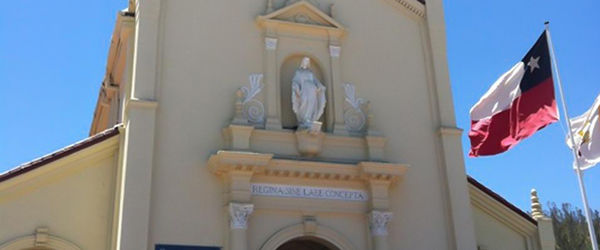Established: Sept. 1, 1992Location: 5801 Kanan Road, Westlake VillageSanta Barbara Region: Deanery 4In 1992 three new parishes opened in the Archdiocese — one in Cudahy, one in North Hollywood and one in Westlake Village. The Sacred Heart and Our Lady of Guadalupe inspired titles for the first two, but the third received the unusual distinction of being named for a martyred Polish Franciscan who Pope John Paul II had just canonized that year.Having survived many difficulties in his youth, Father Maximilian Kolbe was ordained in 1918 and soon after founded a monastery in Japan (that still exists). During World War II he provided shelter for refugees that included 2,000 Jews whom he hid from Nazi persecution. But in 1941 the German Gestapo arrested him in February and sent him to Auschwitz I as prisoner #16670.In July a prisoner from Kolbe’s barracks vanished and the camp commander picked 10 men to be starved to death in retaliation. One of the selected victims, Franciszek Gajowniczek, cried out in protest, lamenting his family, and Father Kolbe volunteered to take his place. After three weeks of starvation, he was still alive (but had led all the dying men around him in prayer and song during the ordeal), and was killed with an injection of carbolic acid. Pope Paul VI beatified Father Kolbe in 1971, and Franciszek Gajowniczek was present at the canonization ceremony in 1982 when Pope John Paul II declared him a martyr. In 1992, St. Maximilian Kolbe (feast day: Aug. 14) was declared a martyr of charity and named a patron saint of drug addicts, political prisoners, journalists and prisoners by John Paul, who further called him “the Patron Saint of Our Difficult Century.” He is one of ten 20th century martyrs who are depicted in statues above the Great West Door of Westminster Abbey, London. His statue is also on the grounds of the Westlake Village parish named in his honor, which faced its own unique challenges getting started.Its founding pastor, Msgr. Peter O’Reilly, the from County Longford, Ireland, celebrated the first Masses in the Oak Hills elementary school in Oak Park. The next year he brought his parishioners to a shopping center at 638 Lindero Canyon Road where some 300 worshipped in suites A6 and A7. That site empowered the growing parish to combine parish offices, meeting space and the sanctuary in one place. Parishioners felt they were like a pilgrim church, but at the same time could envision their future permanent location — right across the street. The Irish pastor continued the storefront ministry for four years, using the skills of leadership he had acquired since his ordination in 1961 at age 27. He had been most recently been pastor for eight years at Nativity, El Monte, and received a master’s degree in English from Loyola Marymount University and a Doctor of Ministry degree at Claremont. On St. Joseph’s Day, 2000, the new 850-seat church on seven acres was dedicated with Cardinal Roger Mahony presiding. At the dedication, Msgr. O’Reilly likened the transition to the early Christian church, whose members were “always moving from place to place. Like Abraham, we move on.” He retired as pastor emeritus in 2005 and now lives in Claremont.Msgr. O’Reilly was succeeded by Father Patrick O’Dwyer, a native of County Tipperary, ordained in 1972 and previously pastor for 12 years at St. Bruno in Whittier. In 2009, having served in the archdiocese for 37 years, he died suddenly of natural causes at age 61. “A dedicated, kind, friendly priest,” said a parish official. “His life was the church.”St. Maximilian Kolbe’s current pastor is another Irish priest, Father Thomas Jarlath Dolan, a native of County Galway born in 1949. Since his ordination in 1974, Father Dolan has served as pastor at Transfiguration, L.A.; Annunciation, Arcadia; and Blessed Junípero Serra, Camarillo, before coming to “St. Max” in 2010. For more than nine years he also was a member of the Matrimonial Tribunal. He has already recognized how “gracious” the community is, emphasizing the dedication and service of parishioners as emblematic of Father Kolbe’s act of sacrifice for another human being and how it impacts the faith community.“We inherit from what has gone before,” he says, “and then bequeath to those who follow.” {gallery width=100 height=100}gallery/2012/0713/stmaxside/{/gallery}

